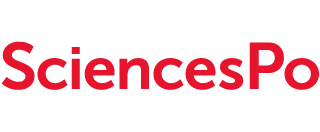What is a controversy?
Social studies of sciences have demonstrated that the process of developing scientific knowledge is marked by discussions and even disputes of which the results have a degree of uncertainty.
Numerous works in the field of sociology of innovation have shown that such discussions extend beyond the walls of laboratories and implicate not only scientists but also non governmental organizations, companies, elected officials, journalists…
Be they confined to circles of specialists or be they highly publicized, the debates that accompany the development of knowledge and which are characterized by areas of uncertainty are called controversies.
Mapping of Controversies
Mapping of controversies is a method that serves to analyse decision making in situations of uncertainty. It consists in a collective investigation conducted by groups of students, using qualitative methods and digital tools [1]. This method makes it possible to describe all of the stakeholders involved in an issue and their interactions, but also to identify the stakes of the issue and the complexities of the stakeholders’ positions[2].
The goal of mapping controversies is twofold: it helps students comprehend the complex situations and to describe which forces are present, as it also it enables them to detect among the stakeholders involved which ones put forth convincing evidence and arguments.
The mapping of controversies can therefore be conceived as an original proposal on how to restore confidence and act in an uncertain world.
Social studies of sciences have demonstrated that the process of developing scientific knowledge is marked by discussions and even disputes of which the results have a degree of uncertainty.
Numerous works in the field of sociology of innovation have shown that such discussions extend beyond the walls of laboratories and implicate not only scientists but also non governmental organizations, companies, elected officials, journalists…
Be they confined to circles of specialists or be they highly publicized, the debates that accompany the development of knowledge and which are characterized by areas of uncertainty are called controversies.
Mapping of Controversies
Mapping of controversies is a method that serves to analyse decision making in situations of uncertainty. It consists in a collective investigation conducted by groups of students, using qualitative methods and digital tools [1]. This method makes it possible to describe all of the stakeholders involved in an issue and their interactions, but also to identify the stakes of the issue and the complexities of the stakeholders’ positions[2].
The goal of mapping controversies is twofold: it helps students comprehend the complex situations and to describe which forces are present, as it also it enables them to detect among the stakeholders involved which ones put forth convincing evidence and arguments.
The mapping of controversies can therefore be conceived as an original proposal on how to restore confidence and act in an uncertain world.
note
See an example of method:
↩︎note
See the students’ case studies works. ↩︎
